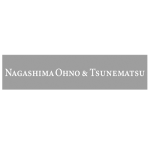The Disclosure Working Group (DWG) of the Financial System Council of the Japanese Financial Services Agency is considering expanding its rules on the disclosure of information. This would contribute to a constructive dialogue between companies and investors by giving investors access to more information, such as agreements between a company and its shareholders.
This article examines the recent discussions at the DWG over revising the rules for disclosing "Material Contracts in Management."
DWG’s awareness of issues
At the 5th meeting of the DWG, held on January 19 2022, the need to review the disclosure practices of "Material Contracts in Management" in Japan was acknowledged. The practice of disclosing these contracts in Japan is considered insufficient compared with practices in the US and the EU. For example, there are cases where the contracts between a foreign company and a Japanese company are disclosed in detail outside Japan by the foreign company, but not disclosed in detail in Japan by the Japanese company.
In addition, certain agreements between companies and shareholders are usually important for investment decisions, but the DWG has pointed out that the disclosure of these agreements in Japanese annual securities reports, semi-annual securities reports, and quarterly securities reports (collectively, ASRs) is insufficient. The types of agreements are listed below:
Agreements on corporate governance such as the following:
Agreements on the right to nominate candidates for directors;
Agreements binding on the exercise of voting rights; and
Agreements on matters requiring prior consent by certain shareholder(s).
Agreements regarding shareholdings such as the following:
Agreements prohibiting or restricting the transfer or other disposition of shares;
Agreements prohibiting the purchase of additional shares;
Agreements to maintain shareholding ratios; and
Agreements requiring the sale of shares upon termination of certain agreement.
The DWG also lists the disclosure of loan covenants and other material business contracts among the types of contracts subject to review.
Direction of the review
Based on the awareness of the issues as mentioned above, the DWG is considering measures such as adding items to be stated in the ASRs and publishing a collection of good practices.
While enhanced disclosure is important for making appropriate investment decisions, expanding the items of disclosure also introduces disadvantages such as the burden on companies For example, the DWG's study materials point out that, with regard to a case outside Japan in which the entire contract is disclosed, there are doubts as to whether it is easy for investors to understand if the entire contract, which runs to several dozen pages, is attached to the ASRs.
The DWG also noted the following points to be considered when reviewing the disclosure practices. We look forward to seeing how these points will be taken into consideration in the concrete measures proposed after the disclosure practices are reviewed.
Requiring the disclosure of agreements that have already been executed at the time of implementation of the revised disclosure practices should be avoided (although the overall direction of the discussions in the DWG seems to be to include such executed agreements that have already been executed in the scope of disclosure);
Only agreements that are legally binding should be subject to disclosure (although, in the DWG, there is an opinion that the need for disclosure should be decided based on the actual impact, regardless of whether the agreement is legally binding);
Consideration should be given to the protection of trade secrets; and
The shareholding ratio of shareholders in the agreement subject to disclosure should be limited.
Final thoughts
The information above provides an introduction to the DWG's discussion on the disclosure of "Material Contracts in Management."
The DWG has also discussed the timeliness and enhancement of English-language disclosure, with some suggesting that a certain degree of English-language disclosure should be mandatory, especially for TSE “Prime Market” listed companies in Japan.
On June 13 2022, the DWG released a report titled “Toward Building a Capital Market that Enhances Corporate Value over the Medium to Long Term.” In the report, the contents of the discussions explained above are basically maintained. From now on, revisions to regulations and guidelines based on this report are expected to bring about substantial impact on disclosure practices in Japan.


